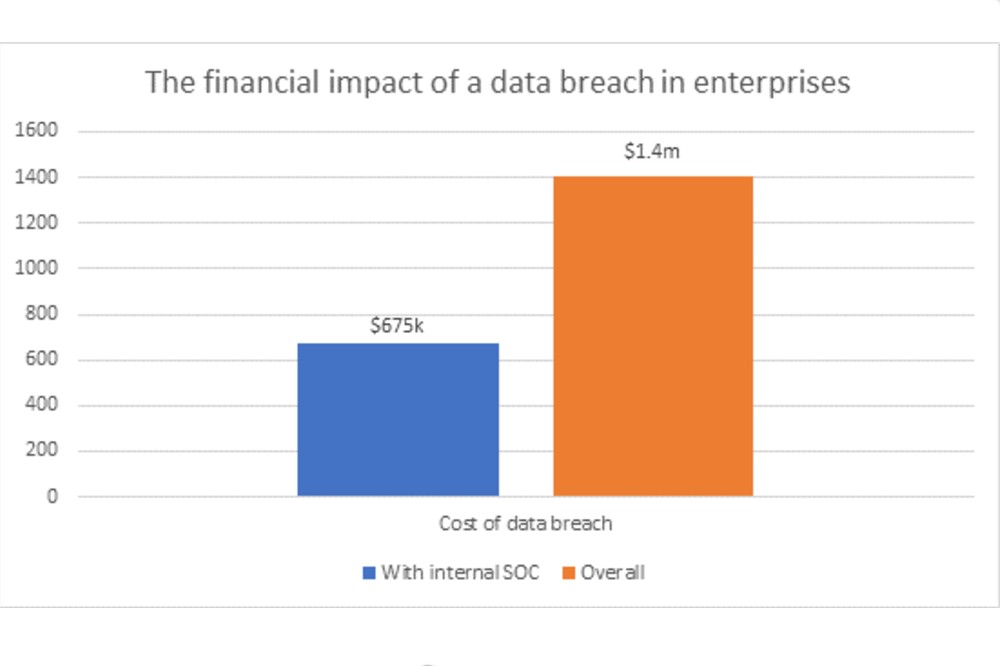Enterprises with an internal Security Operation Center (SOC) estimate their financial damage from a cyberattack at £548k, which is less than half the average impact cost for all enterprise-level organisations (£1.1m), a new survey from Kaspersky and B2B International has revealed.
Every year, data breaches are becoming more expensive for enterprises. In 2019, this cost has risen to £1.1m, up from £900,990 million the previous year, according to the report. In response to this, large organisations are investing more in cybersecurity, with enterprise IT security budgets averaging £15.4m this year, compared to £7.2m in 2018.
The report makes the suggestion that companies should be investing in security software and IT professionals to lower the total cost to the firm. While there is clearly a cost involved in an increased investment, there’s both reputational and financial damages to take into account when it comes to security.
Kaspersky says that enterprises can look to reduce the financial impact of a data breach by building an internal SOC, responsible for the ongoing monitoring of security events and incident response. It asserts that adopting an SOC halves monetary loses from data breaches to just £548k, while larger SMBs (with 500+ employees) who adopt an SOC can also see significant savings as well, with the total financial impact of a data breach for these businesses estimated at £86k, compared to £104k for the average SMB of this size.
Outsourced SOCs, however, don’t reduce the cost of data breaches for enterprises, Kaspersky notes. The report showed that outsourcing security to a Managed Security Service Provider (MSP) may actually increase the financial impact, particularly if the company uses an under-qualified subcontractor: 23% of companies that use an MSP experienced a financial impact of between £89k-202k, while only 19% of businesses with an in-house IT team reported this level of damage.
Another way to keep the cost of a breach down is by hiring a DPO. This is an employee who is responsible for building and implementing data protection strategy within a company, as well as managing compliance issues. The survey highlighted that more than one-third of organisations (34%) with a DPO that suffered a data breach did not incur any financial loss, compared to only one-fifth (20%) of businesses overall.
“Establishing an internal SOC involves purchasing the necessary tools, building processes and recruiting analysts, which can be a challenge for any business. Likewise, finding a DPO, who can combine IT security and legal knowledge, is not an easy task. These require time and budgets, and security leaders often find it difficult to justify such initiatives. But as we can see, these are worthwhile investments. Of course, just having a dedicated employee or even special subdivision does not guarantee that a company will not suffer a data breach, however, it does ensure that the business is prepared for these incidents, allowing them to recover from an attack more quickly and efficiently,” comments Veniamin Levtsov, VP, Corporate Business at Kaspersky.


